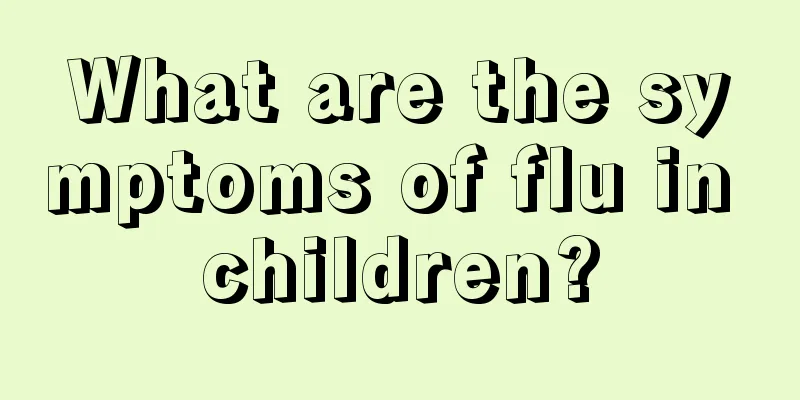How to train children to speak

|
Many parents become anxious when they see other babies learning to speak, and want their babies to learn to speak as quickly as possible. How to train children to speak? In fact, when children are young, many of their behaviors are imitations of adults. As long as parents communicate more with their children in daily life, read stories to them frequently, and let them receive language stimulation, I believe that children will learn to speak soon. 1. How to teach your baby to speak In daily life, when parents feed their baby, change their baby's diapers, provide them with daily care, or take their baby out, these are excellent opportunities to communicate with their baby verbally. So, how do you teach your baby to speak? 1. Pay attention to daily communication When changing the baby's diaper, you can say: "The baby's bottom is dirty, mommy changes the diaper, da, da, put on the small sticky strip, the diaper is changed, the baby is so happy!" When feeding the baby water, you can say: "Drink some water." When looking in the mirror, point at the mirror and say to the baby "This is the baby" and "This is mommy." In addition, when taking your baby out, everything you see and hear along the way can be used as content for conversation with your baby. 2. Appropriate language stimulation When speaking to your new baby, your voice should be soft, your speech should be slow, and you can also use beautiful melodies to accompany your speech. For example: mothers can sing nursery rhymes to their babies softly; read poems to their children, such as "Three Character Classic" and so on. However, mothers must know the limits. Language stimulation should not be too frequent or last too long, so as not to fatigue the baby's brain and nerves, which would result in counterproductive results. 3. Pay attention to intonation and onomatopoeia Although babies cannot speak, they have different feelings about different tones. Parents should use higher-pitched voices when communicating with their babies. Raising the tone to attract the baby's attention, lowering the tone to comfort or arouse the baby's positive emotions mood. When parents talk to their babies, they should use more onomatopoeia and reduplication that babies like to hear. For example: "The chicks chirp, the ducks quack..." The baby will be very happy after hearing it, and then will naturally imitate it. 4. Use gestures According to scientists, the earlier a baby learns to point with his index finger, the earlier he can express his needs and speak. Babies can already use gestures to express their needs at 8-10 months old. They will touch an object with their fingers. body, attract the mother's attention, hoping to meet their needs. For example, the mother can first demonstrate by pointing to the baby's photo or a picture on the wall, talking while pointing, and then pulling the baby's finger. After training many times, the baby will learn to pull! When the baby points to an object, the mother should say the name of the object, slow down the speaking speed, and say it several times to develop the baby's language. 5. Use more positive and affirmative words and phrases When your baby is learning to speak, parents should try to use fewer negative phrases such as "Don't touch it" or "Stop, don't do that." Positive and affirmative words will give your baby great confidence. For example, if your baby is naughty and grabs a teacup to play with, you might as well give him a ball instead and say, "Let's play with the ball together. Mommy rolls the ball over to you, and the baby catches it and then rolls it back to mommy." 6. Make games Babies are born to love games, and they can learn a lot through game interactions. Parents, you should often play games with your babies to create a happy atmosphere. For example, in the nose-touching game, you and your baby face each other. Sit opposite him and let him look at you. You name a part of the body and ask your baby to point it out. You ask him, "Where is mommy's nose?" The baby will point to your nose with his finger. You can also let your baby follow your language prompts and point to his own own body parts. Babies can naturally and happily acquire language through this organized game. |
<<: Why can't children speak clearly?
>>: What kind of yogurt is best for children?
Recommend
Causes and treatment suggestions for yellow watery diarrhea in newborns
Newborns are our fragile ones, and many things ca...
What to do if a child has a fever and vomits
Clinically, it is very common for children to hav...
What should I do if my child has a cough for half a year?
In life, people will encounter some difficult dis...
Two-year-old girl has a bad smell in her private parts
Children nowadays often wear open-crotch pants, a...
What to do if your eight-month-old baby has a picky eater
The birth of every baby means hope and future for...
What to do if your child has no memory
It is a common problem that children have poor me...
How to treat eczema in a 3-year-old child?
In general, eczema is a minor illness and not a s...
There are many white spots on the baby's face
There is no need to worry if your baby has a lot ...
What is the reason for children's hair loss? Parents should pay more attention
If a child has hair loss, the first thing to do i...
Signs of baby's growth
Generally speaking, the baby's infant period ...
What material is good for plastic baby bottles?
Nowadays, many mothers are unable to breastfeed t...
What to eat when a child has hard stools
Hard stools are a very common problem in children...
Eight-month-old baby sweats on the back of his head
After the baby is eight months old, his body has ...
What to do if your baby has a low temperature after the fever subsides
There is probably no baby in the world that does ...
What to do if your newborn baby has water discharge from his belly button
If a newborn has water flowing out of the belly b...









